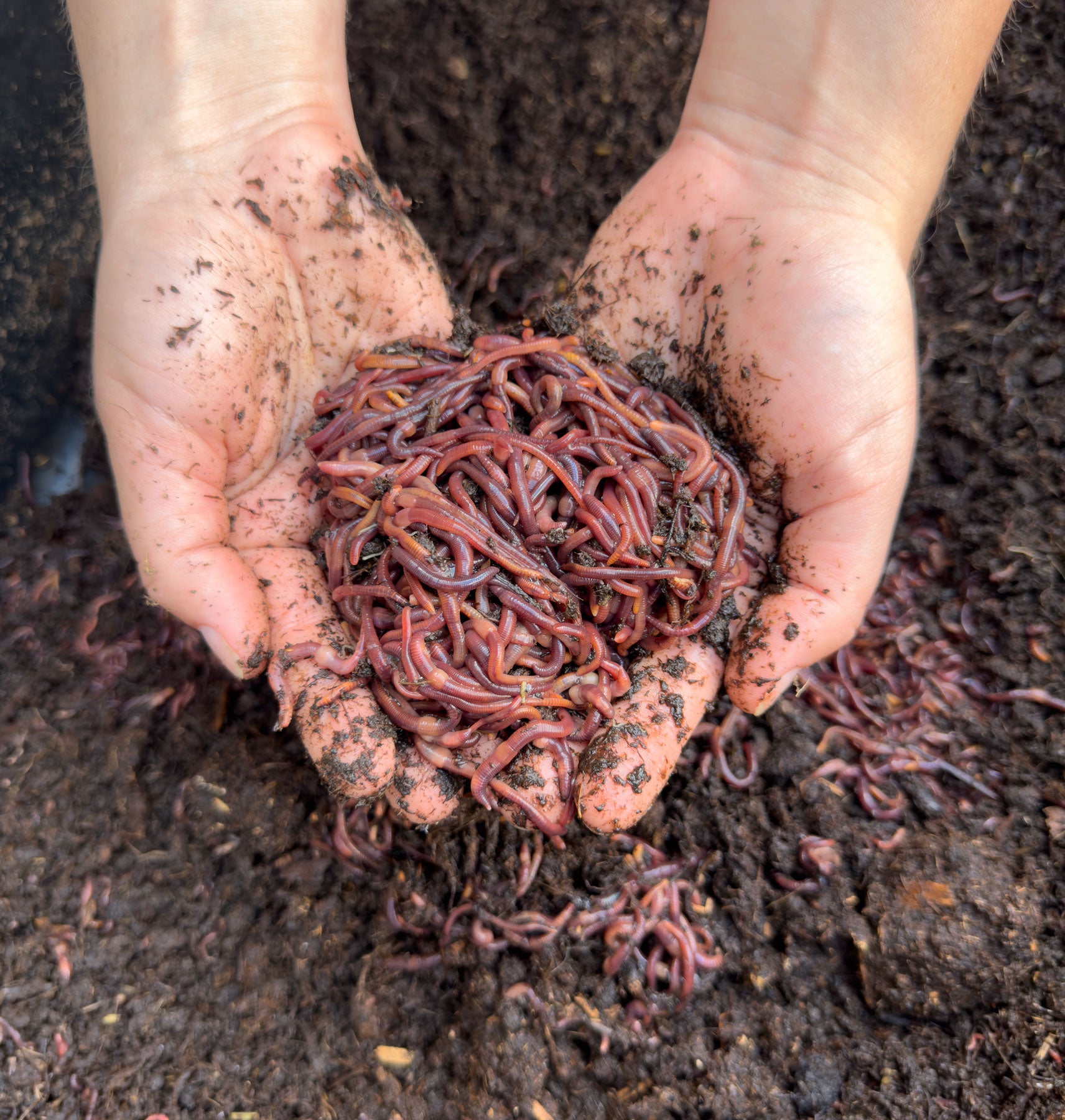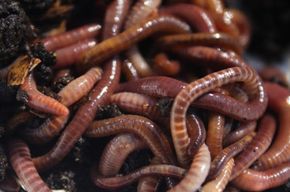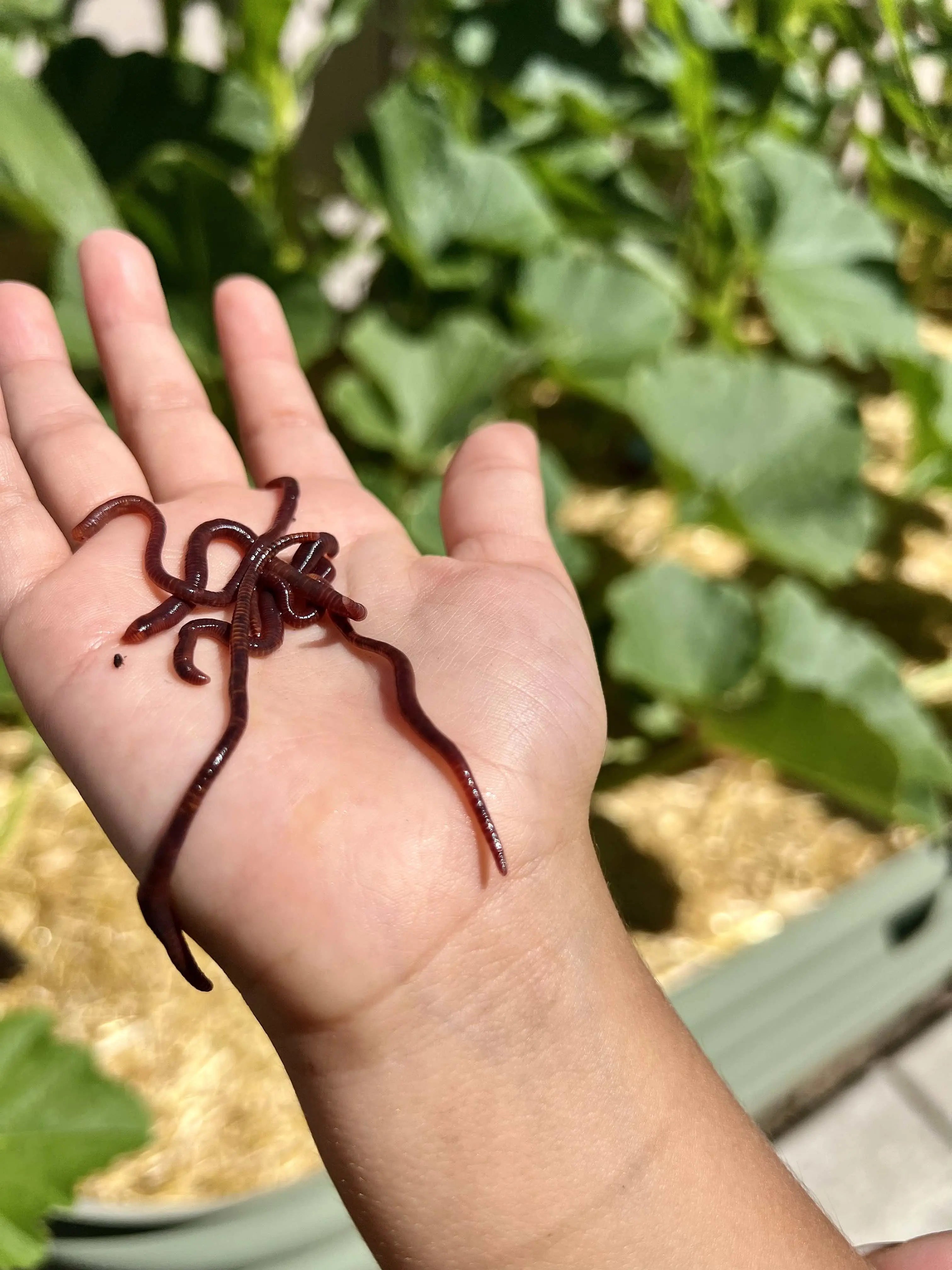Red Wiggler Worms Demystified: Unlocking the Secrets of Vermiculture for Greener Living and Nutrient-Rich Soil
In the world of sustainable techniques for enhancing dirt high quality and advertising eco-conscious living, red wiggler worms play a crucial yet typically ignored role. These humble creatures have the amazing capability to transform natural waste into nutrient-rich spreadings that act as a powerful natural fertilizer. By diving right into the world of vermiculture, one can uncover a huge selection of benefits that prolong much beyond typical composting techniques. Recognizing the details of looking after these worms, maximizing their setting, and utilizing their castings can lead to a greener way of life and healthier soil for plants to prosper.
The Duty of Red Wiggler Worms
Red Wiggler worms play an important duty in composting systems by efficiently damaging down organic matter into nutrient-rich castings. These voracious eaters eat a variety of organic products, such as kitchen scraps, backyard waste, and paper items. As they feed, the worms' digestive system procedures damage down the natural issue right into a penalty, dark, and nutrient-dense product called worm castings or vermicompost.
The spreadings created by Red Wiggler worms are very useful for soil health and plant growth. They are abundant in essential nutrients like phosphorus, nitrogen, and potassium, which are essential for sustaining healthy plant development. Furthermore, worm spreadings consist of helpful microorganisms and enzymes that assist enhance dirt framework, rise water retention, and enhance nutrient uptake by plants.
Advantages of Vermicomposting

Additionally, vermicompost, the nutrient-rich end product of vermicomposting, functions as an excellent organic fertilizer and soil conditioner. It boosts dirt framework, improves soil aeration, and boosts soil dampness retention. These buildings add to healthier plants with more powerful root systems and better resistance to illness and parasites. Vermicompost also enhances the dirt with necessary nutrients like nitrogen, potassium, and phosphorus, promoting plant development and total soil fertility.
In addition, vermicomposting supports sustainable horticulture practices by providing a all-natural and chemical-free option to artificial fertilizers. Red Wiggler Worms. This ecologically friendly strategy not just enriches the dirt but additionally helps in reducing dependence on harmful chemicals, promoting a greener and a lot more sustainable method of horticulture
Establishing a Worm Container
When developing a worm bin for vermicomposting, appropriate arrangement is essential to guarantee the success of the composting process. The initial action in establishing up a worm container is selecting an ideal container.
After adding the bed linen, introduce the red wiggler worms to the bin. The worms ought to after that be supplied with food scraps such as fruit and veggie peels, coffee premises, and eggshells.
Consistently keep an eye on the dampness levels and temperature in the worm bin to guarantee optimal problems for the worms. With correct configuration and upkeep, the worm bin will successfully transform organic waste into nutrient-rich compost for your plants and garden.
Gathering Worm Spreadings
To effectively collect nutrient-rich worm spreadings from your vermicomposting system, a systematic harvesting method is necessary. When it comes time to gather the worm castings, there are a couple of essential steps to follow to make sure an effective process.

Troubleshooting Common Issues
Determining and dealing with typical challenges that might develop during the vermicomposting procedure is critical for maintaining a productive and healthy and balanced worm bin. One typical issue that vermicomposters encounter is overfeeding. Adding excess food scraps can cause an accumulation of dampness and level of acidity in the worm container, possibly damaging the worms. To avoid this, feed the worms in small amounts, making certain that the food scraps are properly broken down prior to adding a lot more. An additional concern is unpleasant odors rising from the worm container. Foul scents suggest anaerobic conditions, usually triggered by overwatering or poor air flow. To correct this, adjust the dampness degrees by adding dry bedding products like shredded newspaper or cardboard and increase oygenation by turning the bed linens frequently.
Furthermore, if the worm populace is declining or the worms appear harmful, it might be because of environmental stress factors such as severe temperatures or pH degrees. Monitoring these aspects and making necessary adjustments is essential for the wellness of the worms. By repairing these typical concerns quickly, vermicomposters can make certain a smooth and successful vermicomposting process while preserving a helpful hints growing worm population.

Verdict
To conclude, red wiggler worms play an important function in vermiculture by breaking down organic matter into nutrient-rich soil. The benefits of vermiculture include greener living and improved dirt top quality. Establishing a worm container is essential for effective vermiculture, and collecting worm spreadings gives beneficial garden compost for gardening. By comprehending and troubleshooting common problems, individuals can view publisher site unlock the secrets of vermiculture for lasting living and much healthier dirt.
As they feed, the worms' gastrointestinal processes break down the organic issue into a fine, dark, and nutrient-dense product understood as worm castings or vermicompost.
The spreadings generated by Red Wiggler worms are extremely helpful for soil health and plant development. Adding excess food scraps can lead to a build-up of wetness and acidity in the worm container, possibly harming the worms.In addition, if the worm population is decreasing or the worms appear unhealthy, it can be due to ecological stressors such as severe temperatures or pH degrees. Setting up a worm container is vital for successful vermiculture, and gathering worm spreadings offers useful compost for horticulture.